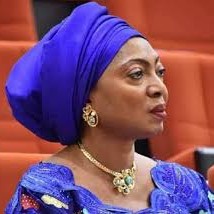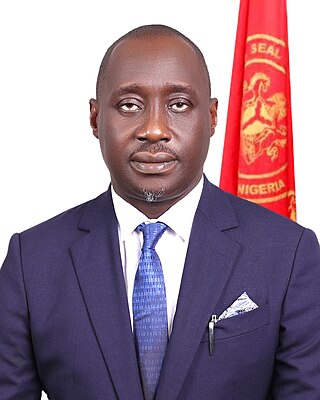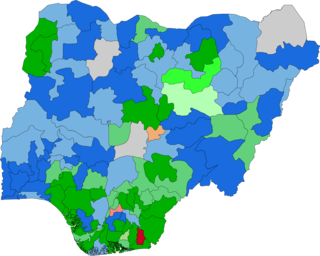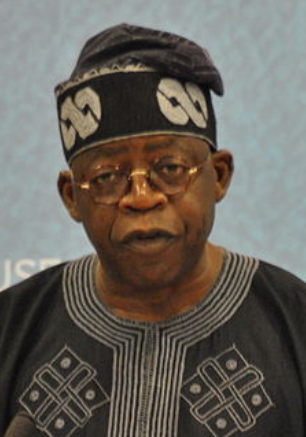| |||||||||||||||||||||||||||||||||||||
3 of the 360 seats in the House of Representatives | |||||||||||||||||||||||||||||||||||||
|---|---|---|---|---|---|---|---|---|---|---|---|---|---|---|---|---|---|---|---|---|---|---|---|---|---|---|---|---|---|---|---|---|---|---|---|---|---|
| |||||||||||||||||||||||||||||||||||||
The 2022 Nigerian House of Representatives elections are called to fill vacant seats in the House of Representatives.
| |||||||||||||||||||||||||||||||||||||
3 of the 360 seats in the House of Representatives | |||||||||||||||||||||||||||||||||||||
|---|---|---|---|---|---|---|---|---|---|---|---|---|---|---|---|---|---|---|---|---|---|---|---|---|---|---|---|---|---|---|---|---|---|---|---|---|---|
| |||||||||||||||||||||||||||||||||||||
The 2022 Nigerian House of Representatives elections are called to fill vacant seats in the House of Representatives.
The 360 members of the House of Representatives are elected from single-seat constituencies using first-past-the-post voting; when vacancies occur, by-elections (or bye-elections) are called, scheduled, and administered by the Independent National Electoral Commission. New elections are also called if the general election was annulled by a court or election tribunal with these elections being referred to as supplementary elections if the election is only held in certain polling units and as rerun elections if the election held throughout the entire constituency.
| Constituency | Incumbent | Election | ||
|---|---|---|---|---|
| Member | Party | Results | Candidates | |
| Akure North/Akure South | Adedayo Omolafe | PDP | Incumbent died 16 August 2021 New member elected on 26 February APC gain |
|
| Jos North/Bassa | Haruna Maitala | APC | Incumbent died 2 April 2021 New member elected on 26 February PRP gain after court decision |
|
| Ogoja/Yala | Agom Jarigbe | PDP | Incumbent resigned 22 September 2021 New member elected on 26 February APC gain |
|
On 16 August 2021, member for Akure North/Akure South Adedayo Omolafe (PDP) died from an undisclosed illness. [1] In December 2021, INEC stated its intent to use the Bimodal Voter Accreditation System (BVAS) technology for the by-election along with having polling unit workers upload results directly to the INEC results portal on Election Day. [2] In January, INEC set the date for the by-election for 26 February alongside five other by-elections, with party primaries taking place between 26 January and 5 February. [3]
The APC conducted an indirect primary on 1 February to nominate one of eight cleared candidates. [4] Mayokun Lawson-Alade emerged as the nominee with over 43% of the vote, defeating former Ondo State Commissioner for Women Affairs Omowunmi Olatunji-Ohwovoriole and former Ondo State House of Assembly member Ademola Adegoroye. [5]
| Party | Candidate | Votes | % | |
|---|---|---|---|---|
| APC | Mayokun Lawson-Alade | 305 | 43.63% | |
| APC | Omowunmi Olatunji-Ohwovoriole | 196 | 28.04% | |
| APC | Ademola Adegoroye | 66 | 9.44% | |
| APC | Ifedayo Abegunde | 56 | 8.01% | |
| APC | Dennis Fadairo | 43 | 6.15% | |
| APC | Abiodun Adesida | 16 | 2.29% | |
| APC | Sunday Olajide | 13 | 1.86% | |
| APC | Emmanuel Owoyemi | 4 | 0.57% | |
| Total votes | 699 | 100.00% | ||
The PDP conducted an indirect primary on 3 February to nominate one of five cleared candidates. [4] Olumuyiwa Adu emerged as the nominee with 42% of the vote, defeating former Ondo State House of Assembly member Kemisola Adesanya. [6]
| Party | Candidate | Votes | % | |
|---|---|---|---|---|
| PDP | Olumuyiwa Adu | 98 | 42.24% | |
| PDP | Kemisola Adesanya | 70 | 30.17% | |
| PDP | Babatunde Faro | 40 | 17.24% | |
| PDP | Dayo Awude | 16 | 6.90% | |
| PDP | Bayo Alarapon | 8 | 3.45% | |
| Total votes | 232 | 100.00% | ||
Ahead of the by-election, the campaigns of both APC nominee Mayokun Lawson-Alade and PDP nominee Olumuyiwa Adu were optimistic, with Adu hoping to be buoyed by the late Omolafe's popularity in the constituency. Observers noted that despite the areas being a PDP stronghold, the race was shaping up to be competitive and close. [7] [8]
Security-wise, the pre-election situation was described as peacefully normal and that peace continued in most units on election day; however, there was a report of a voter being assaulted in one unit along with a number of vote buying accusations notably including a claim that Ondo State Deputy Governor Lucky Aiyedatiwa (APC) personally went to a unit to organize a vote buying operation. [9] [10] [11] On the other hand, INEC was commended for the timely opening of units and functioning BVAS machines. [12]
After the votes were counted, Lawson-Alade was announced as victor after results showed him defeating Adu by about 2,000 votes, 51% to 47%; the election had 14.41% turnout. [13] [14] Anonymous PDP sources blamed poor campaigning for the loss of the stronghold constituency while Ondo APC Chairman, Ade Adetimehin, cited the party's strategy and governing performance. [15]
| Party | Candidate | Votes | % | |
|---|---|---|---|---|
| APC | Mayokun Lawson-Alade | 26,370 | 51.36% | |
| PDP | Olumuyiwa Adu | 24,201 | 47.13% | |
| ADP | Felicia Oluwawemimo | 465 | 0.91% | |
| APP | Joseph Ajayi | 125 | 0.24% | |
| NRM | Johnson Olawusi | 76 | 0.15% | |
| SDP | Opawole Tajudeen | 68 | 0.13% | |
| A | Olawanle Oyemakinde | 41 | 0.08% | |
| Total votes | 51,346 | 100.00% | ||
| Turnout | 52,259 | 14.41% | ||
| APC gain from PDP | ||||
On 2 April 2021, member for Jos North/Bassa Haruna Maitala (APC) died in a car crash. [18] In December 2021, INEC stated its intent to use the Bimodal Voter Accreditation System (BVAS) technology for the by-election along with having polling unit workers upload results directly to the INEC results portal on Election Day. [2] In January, INEC set the date for the by-election for 26 February alongside five other by-elections, with party primaries taking place between 26 January and 5 February. [3]
The APC scheduled its primary for 1 February, however, the process did not begin until the early morning of 2 February to nominate one of four cleared candidates. [19] [20] The primary was marred by mass vote-buying by the surrogates of several candidates. [21] Later on 2 February, the party declared the primary inconclusive after both former Plateau State Commerce Commissioner Joseph Abbey Aku and former member for Jos North/Bassa Suleiman Yahaya Kwande obtained 344 votes. However, both Aku and Yahaya Kwande rejected the announced results and declared victory; the primary election panel consulted with the national party before deciding to hold a rerun primary. [22]
The rerun primary was scheduled for 4 February, however, only Aku participated as Yahaya Kwande petitioned the national APC claiming that he had won the original primary election. The rerun ended with Aku winning overwhelmingly with 809 of 883 votes while Yahaya Kwande received only 74 votes. [23]
| Party | Candidate | Votes | % | |
|---|---|---|---|---|
| APC | Joseph Abbey Aku | 809 | 91.62% | |
| APC | Suleiman Yahaya Kwande | 74 | 8.38% | |
| Total votes | 883 | 100.00% | ||
The PDP conducted a primary on 3 February to nominate one of its cleared candidates. Musa Agah, a Plateau State House of Assembly member for Irigwe/Rukuba, emerged as the nominee with 54% of the vote, defeating 2019 PDP nominee Jonathan Dabo. [24]
| Party | Candidate | Votes | % | |
|---|---|---|---|---|
| PDP | Musa Agah | 152 | 54.29% | |
| PDP | Jonathan Dabo | 127 | 45.36% | |
| PDP | David Racha | 1 | 0.36% | |
| Total votes | 280 | 100.00% | ||
In the days before the election, observers noted that the race was shaping up to have three major candidates: APC nominee Joseph Abbey Aku, PDP nominee Musa Agah Avia, and PRP nominee Muhammad Adamu Alkali. Analysts also observed regional dynamics as providing issues for the major party nominees and an opening for Alkali as both Aku and Agah Avia are Christians from Bassa LGA which could’ve lead to potential vote splitting to the benefit of Alkali, a Muslim from Jos North LGA. Another potential benefit for Alkali were the contentious APC primaries which allowed him to reach out to aggrieved APC members. [7]
On Election Day, INEC was commended for the timely opening of units and functioning BVAS machines but voters noted low turnout of the electorate. [25] When results were tabulated and announced, Agah Avia emerged the winner as he beat first runner-up Alkali by under 3,000 votes with a turnout of 18.07%. [26] Reactions from the PDP claimed the result was a sign of the party's good prospects for 2023 in Plateau while the PRP party agent refused to sign the election final result sheet, alleging that there were irregularities at the Tudun Wada/Kabon collation centre. [27] [28] [29] [30] In the weeks after the election, pundits argued over if the PRP share was simply a protest vote in the wake of contested APC primaries or a sign of wider disdain for the Plateau APC. [31]
On September 2, the Tribunal sacked Avia and declared Alkali the victor after the PRP presented evidence of overvoting. [32] In late October, a Court of Appeal judgment upheld the Tribunal's ruling and ordered Alkali to be seated due to both overvoting in the general election and improprieties in the PDP nomination process. [33] Alkali was sworn in on 14 November 2022. [34]
| Party | Candidate | Votes | % | |
|---|---|---|---|---|
| PDP | 40,343 | 37.69% | ||
| PRP | Muhammad Adamu Alkali | 37,757 | 35.28% | |
| APC | Joseph Abbey Aku | 26,111 | 24.40% | |
| ADC | Samaila Achigak Ahalu | 1,833 | 1.71% | |
| ADP | Jaafar Bala Sulaiman | 571 | 0.53% | |
| New Nigeria Peoples Party | Salahudeen Uba Ibrahim | 136 | 0.13% | |
| YPP | Francis Sati Agwom | 84 | 0.08% | |
| APP | Fwangmun John Verengkat | 55 | 0.05% | |
| APM | Umar Nasiru | 52 | 0.05% | |
| SDP | Panshak John Verengkat | 52 | 0.05% | |
| LP | Aliyu Umar Salihu | 33 | 0.03% | |
| Total votes | 107,026 | 100.00% | ||
| Turnout | 108,110 | 18.07% | ||
| PRP gain from APC | ||||
On 22 September 2021, member for Ogoja/Yala Agom Jarigbe (PDP) resigned after being sworn in as Senator for Cross River North. [36] In December 2021, INEC stated its intent to use the Bimodal Voter Accreditation System (BVAS) technology for the by-election along with having polling unit workers upload results directly to the INEC results portal on Election Day. [2] In January, INEC set the date for the by-election for 26 February alongside five other by-elections, with party primaries taking place between 26 January and 5 February. [3]
The APC conducted a primary on 1 February to pick a nominee. [37] The consensus nominee became Jude Ngaji, a former aide to governors Liyel Imoke and Benedict Ayade, who ran unopposed. [38] Prior to the primary, the party prevented candidates from purchasing nomination forms as it attempted to reach consensus leading to accusations of imposition from candidates. [39]
The PDP conducted a primary on 3 February to nominate one of its cleared candidates. [37] Mike Usibe, a former Cross River State commissioner, emerged as the nominee with nearly 80% of the vote, defeating barrister Godwin Offiono. [40]
| Party | Candidate | Votes | % | |
|---|---|---|---|---|
| PDP | Mike Usibe | 184 | 78.63% | |
| PDP | Godwin Offiono | 45 | 19.23% | |
| PDP | Margaret Odey | 5 | 2.14% | |
| Total votes | 234 | 100.00% | ||
In the days before the election, observers noted a contentious atmosphere as the two major parties traded accusations of planned manipulation and fears of violence rose. Both parties strove to win the election as it (along with the Akpabuyo State Constituency by-election) was one of the first elections in Cross River State since Governor Benedict Ayade defected to the APC in May 2021 and thus a powerful signal for the path the state is taking ahead of the 2023 elections. [7]
On the day of the election, allegations of manipulation were quickly leveled with Ogoja Local Government Chairman Emmanuel Ishabor (APC) being accused of leading security agents to briefly disrupt voting and personally assaulting a young voter along with a video of Ayade aide Jimmy Bajie supposedly stealing ballot boxes; although he claimed to simply have been helping INEC officials carry the boxes. [41] [42] Feared violence also transpired as the convey of former member, now-Senator, Jarigbe was attacked by gunmen in Ogoja after the attackers had stolen several results sheets; luckily, no one was injured in the attack and INEC officials had already recorded the results on some of the stolen sheets. [43] [44]
Despite the violence and disruptions, INEC announced the full results with Jude Ngaji of the APC winning by about 2,000 votes over Mike Usibe of the PDP; the election's turnout was 23.69%. [45] Almost immediately, the PDP rejected the declared results and stated its intention to challenge the election. [46]
| Party | Candidate | Votes | % | |
|---|---|---|---|---|
| APC | Jude Ngaji | 22,778 | 51.97% | |
| PDP | Mike Usibe | 20,590 | 46.98% | |
| APM | Ongro Rock Ogbeche | 135 | 0.31% | |
| NRM | Christian Chigbe Ilop | 84 | 0.19% | |
| APP | Rapheal Ipuola Okacha | 76 | 0.17% | |
| PRP | Ogonyi Joseph Ugbochi | 65 | 0.15% | |
| YPP | Itegila Igbaji Monkom | 50 | 0.11% | |
| LP | Ebi Dominic Esuo | 29 | 0.07% | |
| SDP | Ogidi Fidelis Odey | 21 | 0.05% | |
| Total votes | 43,828 | 100.00% | ||
| Turnout | 45,356 | 23.69% | ||
| APC gain from PDP | ||||
Kabiru Ibrahim Gaya is a Nigerian politician who has served in the Senate of Nigeria since 2007 representing the Kano South constituency of Kano State. He is a member of the ruling All Progressive Congress (APC).

Rose Okoji Oko was a Nigerian politician and senator. She was a Member of the Federal House of Representatives from the People's Democratic Party (PDP), representing Yala/Ogoja Federal Constituency in Nigeria's 7th National Assembly. She was elected into office as the first female representative from her constituency in June 2011 and sat as Deputy Chairman House Committee on Education. She was the Senator representing the people of Cross River North Senatorial District. She was elected into office as the first female representative from her Senatorial District in June 2015.
Lawal Yahaya Gumau is a Nigerian politician who is currently serving as a Senator from Bauchi South Senatorial District. Prior to becoming a senator, Gumau served for two terms in House of Representatives representing the Toro Constituency. He became a Senator by winning 119,489 votes to defeat his closest rival, Ladan Salihu of the Peoples Democratic Party, who received 50,256 votes to win a 2018 by-election due to the death of Senator Malam Wakili.

Ibrahim Mohammed Bomai is a Nigerian politician. He currently serves as the Senator representing Yobe South Senatorial District in the 10th National Assembly. He was initially elected in 2019 and was reelected in the 2023 Yobe South Senatorial District Election.
Akon Etim Eyakenyi ; born 24 February 1960) is a Nigerian politician who is the deputy governor of Akwa Ibom State. She served as the senator for Akwa Ibom South from 2019 to 2023. Before being elected to the senate, she was the Minister of Lands, Housing and Urban Development from 2014 to 2015 under President Goodluck Jonathan.

Aishatu Dahiru Ahmed, popularly known as AishaBinani, is a Nigerian politician and entrepreneur who was the senator for Adamawa Central from 2019 to 2023. On 30 March 2020, she was appointed Gimbiyar Adamawa by the Adamawa Emirate Council.

Jarigbe Agom Jarigbe is a Nigerian politician and a member of the Senate in Nigeria's 9th National Assembly representing Cross River North and was a member of the House of Representatives in the 8th and 9th National Assembly representing Ogoja/Yala Federal Constituency. Agom Jarigbe was elected to the Green Chamber in 2015 and has served for his second term in office.
The 2019 Plateau State gubernatorial election in Nigeria occurred on March 9, 2019. Incumbent APC Governor Simon Lalong won re-election for a second term, defeating PDP Jerry Useni and several minor party candidates.
The 2015 Plateau State gubernatorial election occurred on April 11, 2015. APC's Simon Lalong won election for a first term, defeating Gyang Pwajok of the PDP and four minor party candidates. Lalong won in 11 LGAs, receiving 51.83% of the vote, while Pwajok won the remaining six of the 17 LGAs of the state, receiving 47.76% of the total votes, trailing behind Lalong with 44,386 votes margin.

The 2023 Cross River State gubernatorial election was held on 18 March 2023, to elect the Governor of Cross River State, concurrent with elections to the Cross River State House of Assembly as well as twenty-seven other gubernatorial elections and elections to all other state houses of assembly. The election — which was postponed from its original 11 March date — was held three weeks after the presidential election and National Assembly elections. Incumbent APC Governor Benedict Ayade was term-limited and could not seek re-election to a third term. Former Senator Bassey Otu held the office for the APC by a 17.5% margin over PDP nominee — Senator Sandy Ojang Onor.
The 2023 Plateau State gubernatorial election was held on 18 March 2023, to elect the Governor of Plateau State, concurrent with elections to the Plateau State House of Assembly as well as twenty-seven other gubernatorial elections and elections to all other state houses of assembly. The election — which was postponed from its original 11 March date — will be held three weeks after the presidential election and National Assembly elections. Incumbent APC Governor Simon Lalong was term-limited and could not seek re-election to a third term. Caleb Mutfwang, a former Mangu Local Government Chairman, gained the office for the PDP by a margin of ~4% over APC nominee Nentawe Yilwatda.

The 2023 Nigerian Senate elections were held on 25 February 2023 in all 109 senatorial districts where voters elected senators using first-past-the-post voting. The last regular senatorial elections for all districts were in 2019.
The 2023 Nigerian House of Representatives elections were held on 25 February 2023 where voters elected members of the House of Representatives using first-past-the-post voting in all 360 federal constituencies. The last regular House elections for all districts were in 2019.
The 2022 Nigerian state legislative elections are called to fill vacant seats in state Houses of Assembly.
The 2019 Plateau State House of Assembly election was held on March 9, 2019, to elect members of the Plateau State House of Assembly in Nigeria. All the 24 seats were up for election in the Plateau State House of Assembly.
Elections were held throughout Nigeria throughout 2022. During the year, the governors of Ekiti and Osun states were elected on 18 June and 16 July, respectively. Additionally, there were also elections to fill vacant seats in the House of Representatives and state houses of assembly along with local elections in Adamawa State, Benue State, Edo State, Enugu State, the Federal Capital Territory, Imo State, Katsina State, and Kebbi State.

The 2023 Nigerian presidential election in Plateau State will be held on 25 February 2023 as part of the nationwide 2023 Nigerian presidential election to elect the president and vice president of Nigeria. Other federal elections, including elections to the House of Representatives and the Senate, will also be held on the same date while state elections will be held two weeks afterward on 11 March.

The 2023 Nigerian Senate elections in Plateau State will be held on 25 February 2023, to elect the 3 federal Senators from Plateau State, one from each of the state's three senatorial districts. The elections will coincide with the 2023 presidential election, as well as other elections to the Senate and elections to the House of Representatives; with state elections being held two weeks later. Primaries were held between 4 April and 9 June 2022.
Musa Agah is a Nigerian politician and a member representing Jos North/Bassa Federal Constituency in Plateau State under the platform of Peoples Democratic Party (PDP).
Suleiman Yahaya Kwande is a Nigerian politician. He was member of the House of Representatives for the Jos North/Bassa Constituency of Plateau State. He was succeeded by Haruna Ibrahim Maitala.